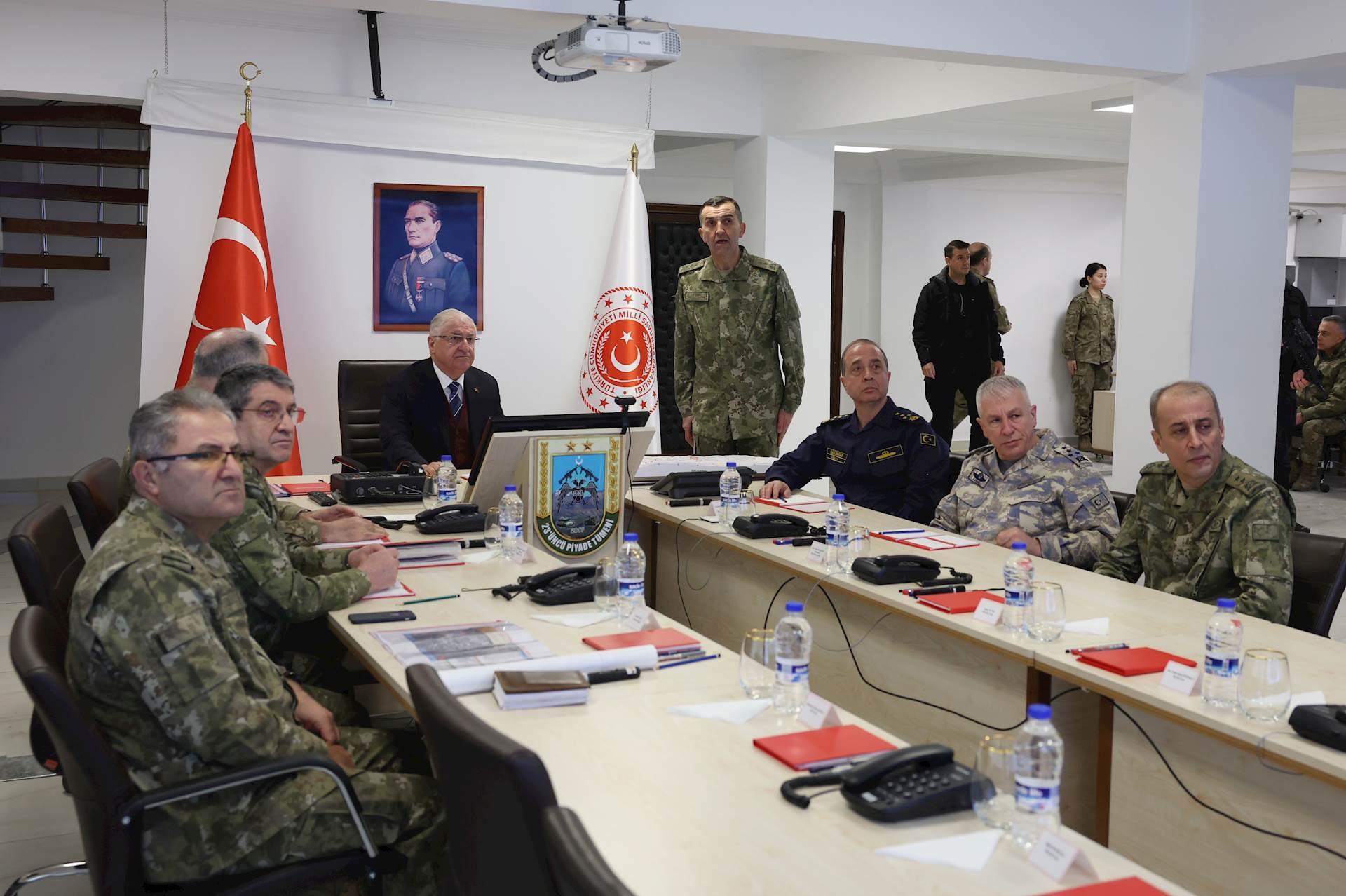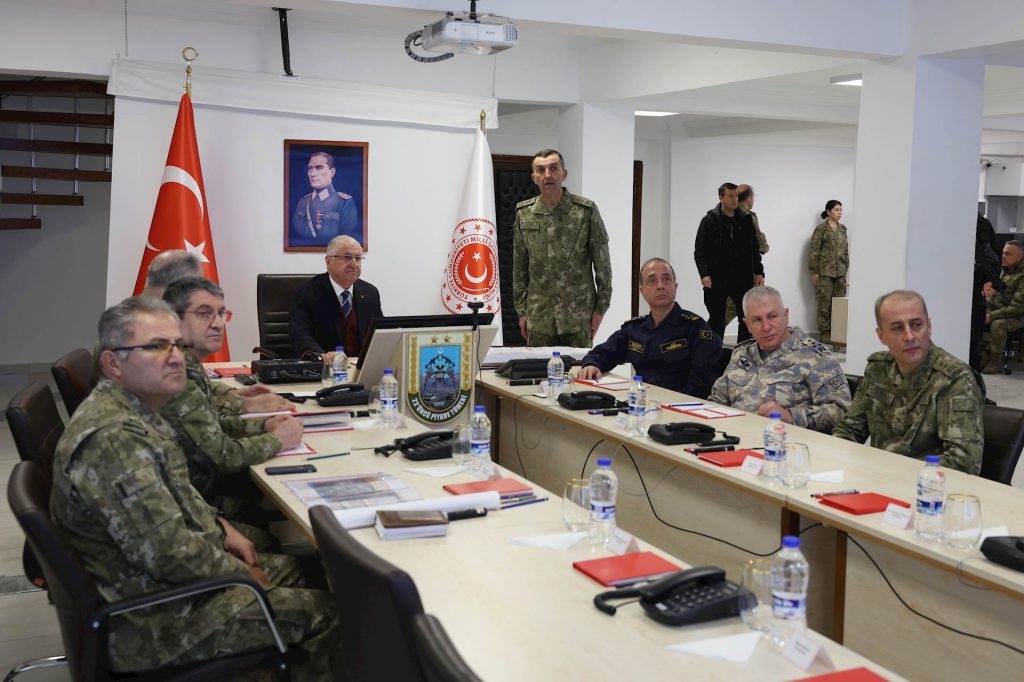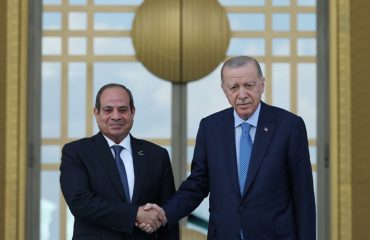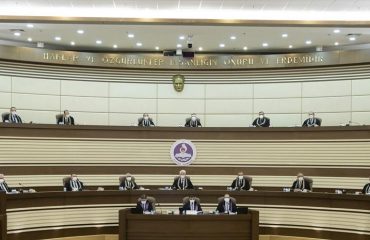

“It is impossible to understand why Turkey, which has the second largest armed forces in NATO and is aligned with the West within the OECD, the Council of Europe and the European Union, is on the menu instead of sitting at the table in the new world order negotiations.” In the photo Minister of National Defense Yaşar Güler is at a meeting with the Turkish Armed Forces Command on the latest situation in the Operation Claw-Lock Operation in Şırnak on January 13. (Photo: Ministry of National Defense)
The energy war, the ethnic war, the religion/sect-based war, the trade war, the technology war, the water war, the war against terrorism, and the war for regional dominance are taking place right next to us.
If we cannot read these better in the light of the global struggle and strategic moves and do not take countermeasures, it seems that they will increasingly spread within the country in the coming period. Abkhazia, Crimea, Ukraine, Syria, Libya, Gaza, Red Sea, Yemen, Iran, Pakistan, sparks are setting fire everywhere. And all of the developments are taking place just a crow’s flight away from us.
From Gaza to Yemen, Iraq, Syria, Iran to the Red Sea, Azerbaijan, Kazakhstan, Pakistan and Afghanistan, Algeria, everywhere is now, or will soon be, a battlefield. The Eastern Mediterranean, Persian Gulf and East China Sea may also explode soon according to this specially prepared war map. And unfortunately, none of these are local and isolated, I think they reflect integral parts of a certain grand strategy.
A strategic play at the table
All maps in our geography are played from certain centers. It is openly announced that the borders will be redrawn. Someone is trying to make every country and border, every sea crossing and gulf controversial and conflicting, using the trump cards and instruments at hand.
Before Ukraine, the war was actually going to break out in the Baltic, but it was pushed to the Black Sea. If Ukraine were not enough, Romania, Poland and Bulgaria could also be dragged into the war. Ankara and Moscow have been extremely careful so far because they saw the big move, but it cannot be said that Ankara, which does not receive friendship from the West, has a back-to-back relationship with Moscow and Beijing.
These developments do not evolve or be cooked in a short time from today to tomorrow. It is carried out within the framework of a patient, systematic and time-spanning big game strategy.
The coup attempt in Turkey, the attack on Syria and Iraq from the north, the encouragement and arming of the Kurds, the creation of a brutal terror machine called the “Islamic State”, the isolation of Iran from the world, the attempt to undermine China’s Belt and Road project, the India-Middle East- European corridor initiative, making the Strait of Malacca insecure, efforts to close Turkey’s Central Asian door from the Caucasus, military bases and build-ups in Dedeağaç and the Aegean islands, turmoil in the Eastern Mediterranean… All these are not coincidental steps, as you might imagine.
Turkey’s security at risk
If Turkey cannot secure this conflict-ridden, tense and hot strategic zone around it alone or with its allies, needless to say, Anatolia will not be safe for a long time. Historical showdowns that were put on dusty shelves will be heated and presented to us as invoices to be paid.
For this, it is necessary to have solid partners in the region and to create an inclusive, solidarity-oriented society, economy and security environment whose problems are largely solved.
Interestingly, in such a period, the border gates were literally opened wide, millions of immigrants entered the country and dispersed to almost every city from all directions. We are suffering the consequences of giving Turkish citizenship and passports to unknown people for economic or political reasons, without doing serious due diligence, and we will suffer more. Demography is rapidly changing in favor of immigrants from the Middle East, Africa and Southeast Asia, while the quality manpower, which is the mainstay of the country, is trying to migrate to the West due to fear of the future. The economy is fragile, the rule of law has eroded, polarization is increasing.
Without deviating from their ultimate goal, the USA and Israel created a Kurdish regional government in Syria, consisting of PYD/PKK, and an army of 100 thousand people equipped with modern weapons. They are also forming an air force now, while Turkey has been removed from the F-35 program and cannot buy F-16s with its money.
Autonomous regions in Iraq and Syria
It is envisaged that the autonomous regions in Iraq and Syria will be united in due course. Much later, if the conjuncture permits and the project of breaking Turkey’s power is successful, there are plans to separate the southeast from Turkey (and the southwest of Iran through PJAK) and include them in the “Great Kurdish state” that will function as a new Israel in the region.
This calculation has always existed since Sevres, but now it has become more visible with the acceleration of the execution of the “Great Game”. It is the creation of the same strategic intelligence intelligence that aims to make Turkey ineffective in the region and unstable at home. The same mind also prevented efforts to reach a “solution” during the Oslo process. It is reported that the operations centers within US CENTCOM and the CIA carry out this work, perhaps bypassing the White House and the State Department most of the time.
Of course, the Kurdish problem is also a very sinister internal problem and a bleeding wound that we cannot solve with our own dynamics, which causes us to play into the hands of others, and is open to constant scratching from the outside.
Will Turkey be at the table or be on the menu?
That’s why saying that we “neutralized” more terrorists with operations after every PKK attack does not serve the final result. It’s important to show off military muscles, but it’s even more important to exercise strategic brains. Standing firmly behind HAMAS, defined as “freedom fighters” after the Gaza attacks, may have led Israel to give the PKK the title of “freedom fighter” and send a message to Ankara by supporting new operations.
For this reason, the Kurds forming a separatist force and even establishing a dagger-like Kurdish state in the region when the time comes (thus causing a hot/cold war between Kurds, Turks, Persians and Arabs that will last for decades, while the Abraham Accords remain in force despite being damaged by Gaza). a national interest account for Tel Aviv. Let’s not forget that Israel has considerable power over the Kurdish region in northern Iraq (through the so-called retired staff officers of MOSSAD and Israel Defense Forces).
It is impossible to understand why Turkey, which has the second largest armed forces in NATO and is aligned with the West within the OECD, the Council of Europe and the European Union, is on the menu instead of sitting at the table in the new world order negotiations.
At this turning point in history, at least a quarter-century of “give and take” diplomatic/military engagement with the region’s powerful players on the front line is required. Instead of leaving our new strategy only to soldiers, diplomats and politicians, it should be ensured that it is the result of a much more comprehensive common mind so that it can be implemented effectively, without delay and successfully.
Inside Erdoğan’s MIT speech: Türkiye’s 5-legged security doctrine


